Emilio Silva, president of the ARMH: there is still a firewall that prevents us from investigating the more than 100.000 disappeared in Spain
HORACIO VIXANDE
In the first months of the Spanish Civil War (1936-1939), in the territory controlled by the coup leaders who were facing the Government of the Republic, there were more than one hundred thousand murders and subsequent disappearance of people with Republican loyalty. Most are still missing and in this interview Emilio Silva, president of the Association for the Recovery of Historical Memory (ARMH), criticizes the lack of involvement of the authorities when it comes to recovering the bodies of the victims. Not even the recent Law of Historical Memory makes the State responsible, he denounces.
After the failed coup d'état against the Second Spanish Republic in 1936 and the civil war that the rebels started afterwards, there was a series of persecutions and murders on both sides. This is so?
I would not use the word sides. There is a government that has to stop a coup. War generates violence, but even between these two opposing groups, there is one that makes violence its discourse, which are the coup leaders. There are instructions from March 1936 from General Emilio Mola in which he indicates what type of violence must be applied, with what intensity and with what speed. It was a part of the Spanish army with experience as a colonial army in North Africa, where very savage types of violence were applied. They are people who come with that learning, while the Government of the Republic and its army do not have that trait. This does not mean that there are no people confronting the fascists and that they used undue violence, but in no case did the Government of the Republic, neither on July 18 [date of the coup], nor at the last moment use violence to persecute political opponents.
In addition, the type of violence is very visible because not letting people bury their dead is also violence. I am the grandson of a disappeared person in a place where there was no war front and my grandmother died long after Franco died without being able to bury the body of her husband. It is a violence chosen by the dictatorship to generate suffering. There are big differences between the coup leaders and the government.
To situate those who are not aware of the disappearances of the victims of Francoism, how, when and where do the disappearances take place?
Most of the disappearances take place, for example, in Galicia, where there was no war, there was a political project that consisted of cleaning up leaders, trade unionists, people who had been politically significant, and the majority were registered between the end of July 1936 and the beginning of November of that year. My grandfather was a merchant from the Republican Left who asked for a public and secular school in his town, that was his greatest political demand, he was assassinated on October 16.
On November 1936, XNUMX, when most of these murders had already taken place, the Official Gazette of the Francoist State published an order so that, as of that day, this type of death began to be registered and this is part of the design What does General Mola do about how the coup d'état will be with his instructions that the violence has to be very harsh: as soon as possible, all political, union, and cultural groups related to the Republic must be decapitated. In those first three months, in what is known as hot terror, most of the disappearances occur. Then there are many disappeared due to the application of the Ley de Fugas; others disappeared after being subjected to a military trial, but most are civilians who, like my grandfather, spent a few hours in illegal detention somewhere.
Were there also disappearances in territories loyal to the Republic?
In the modus operandi of the armed groups that opposed the coup and that murdered people, enforced disappearance was not generally applied. They were murders, but they did not consider denying burial to these people part of the punishment. The coup leaders considered themselves the owners of the cemeteries, so they were absolutely dependent on the Catholic Church. This punishment of disappearances had already been used in Spain by Fernando VII against the afrancesados.
In 1975 General Francisco Franco died and in 1977 there were legislative elections in which the main opposition parties to the dictatorship also participated...
That's not true at all. There is a party that in 1936 obtained more than 18% of the votes, which was the Republican Left party of Manuel Azaña [president of the Republic] and that party was not legalized. There are other political forces that were not legalized either; they were what was called the left of the PCE: Maoists, Trotskyists. On the right, even the most ultra could participate in those elections. All of this is part of a project. That parliament only had to draft a Constitution, although it did many other things, and that is why the parties that claimed the Republic were not present, because the PSOE and the PCE accepted the monarchy. Even Esquerra Republicana de Catalunya had to remove the R from its initials to be able to participate. Many of the victims and disappeared did not have a political representation that defended them. We are talking about people who are still missing.
In any case, the arrival of democracy does not bring with it a process of restitution of the memory of the victims of Francoism, why?
Because the parties that were in Congress did not. The first law of that parliament, before even approving an operating regulation, is the Amnesty Law. The elections were held on June 15, 1977 and at the beginning of July the Communist Party [of Spain, PCE] presented a text of the memory law. Shortly after, the Socialist Party [Obrero Español, PSOE] presented it and then the nationalists and at the beginning of October the Union of the Democratic Center (UCD) [the force that won the elections] presented its draft Amnesty Law and, oh coincidence! All the parties that had a text on memory renounced it and gave their support to the Amnesty Law, which gave impunity to the crimes of the dictatorship in its second article. Amnesties throughout the world, even if they have the votes of the opposition, are self-amnesties, shields that those responsible for the violations of Human Rights give themselves. The two big opposition parties, the PSOE and the PCE, agreed that these crimes were not to be treated as crimes, so they were not even mentioned in parliament. That has been a political guideline until we started to break that iron law in the year 2000.
For the record, at the end of the 70s, exhumations were carried out in some places, without a scientific method, I mean, with picks and shovels. They are relatives who know where those bodies are and exhume them. And there are people who believe what was called the International Civic Tribunal against the crimes of Francoism, where the son of Bertrand Russell participated, where people like Pierre Nora were, people who opposed the impunity of the dictatorship. I studied at the Faculty of Political Science at the Complutense University of Madrid at that time and they never spoke to me about this. Neither of the parties that could not participate in the elections, nor of the exhumations, nor of that International Tribunal, which did very important things at the international level. All this was silenced because the argument for not recovering the memory was "it's that nobody asked for it."
In 2007, when the socialist José Luis Rodríguez Zapatero was president, the first Law of Historical Memory was promulgated.
Before there were other initiatives, political prisoners who had been in jail were compensated... We carried out the first scientific exhumation in 2000. In 2002 we went to Geneva reporting cases of disappeared before the Working Group on Enforced Disappearances. In 2003, for the first time, the case of Spain appeared in the Annual Report of the United Nations High Commissioner. Those were the years of the government [of José María] Aznar's Popular Party, which does nothing. The PSOE criticizes him, and what Zapatero does is assume that he has to be consistent with the criticism and in 2004 he announces the creation of an Inter-Ministerial Commission to study the disappearances of the victims of the dictatorship. The Historical Memory Law enters into force on December 27, 2007. It is a law that does not hold the State responsible. Today, fifteen years later, we are in the ARMH caring for the relatives of the disappeared because they have no official place to go, neither with that law nor with the one in force now.
So the new Democratic Memory Law is also incomplete?
Where do the victims go? That institution does not exist.
The ARMH has carried out 158 exhumations, which implied the location of 1.337 victims. Is it so?
I can't say exactly because I'm not in charge of exhumations. I think it's something else.
Is it known how many victims are missing?
The only estimate that has been made, given that the State has not wanted to make one, after a case opened in the National Court, speaks of 114.226 people. Only in Andalusia there are 47.000 missing. Anyway, you will never know.
I guess the goal is to change the law.
It is not changing the law; the goal is for justice to do what it has to do, but there is a firewall that puts political power to prevent it. Enforced disappearances are several crimes in one: an illegal detention, followed by torture, followed by murder and finished off with the concealment of the body to deny the murdered person their right to perpetual memory, to leave a stone with their name in a place and to impose pain on his family, his friends, his union colleagues, his entourage. They are crimes, according to international law, ratified by Spain, which only begin to prescribe from the moment the whereabouts of the disappeared person is known. These crimes prescribe after 20 years from the location and those of those exhumed since 2003 have not yet prescribed.
The best policy of memory is done in the courts and in the classrooms, but above all in the courts and the political power for 47 years has been in charge of preventing it.
The problem is uncertainty. The tool to generate suffering is not having been able to see the corpse. In this "Peninsula", for more than 300.000 years there is evidence that people are buried with love and here there is this anomaly that there are thousands of families that have not been able to do it.

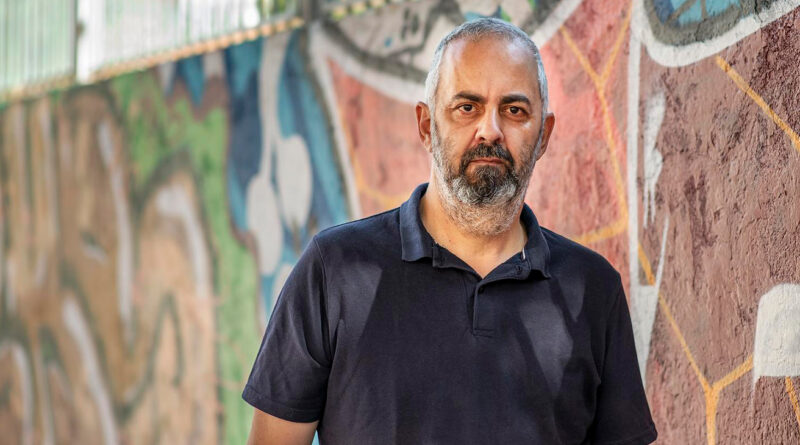
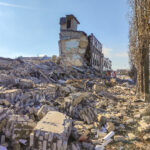
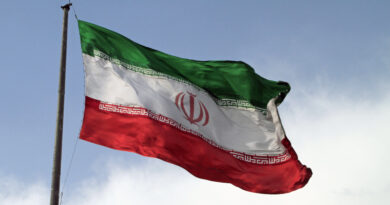
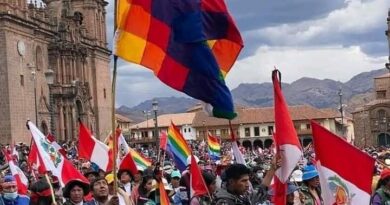
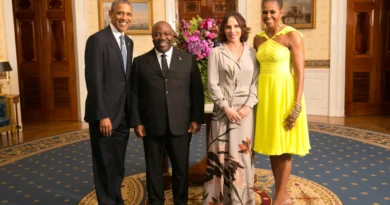
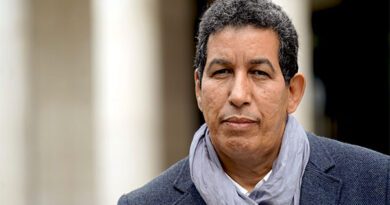
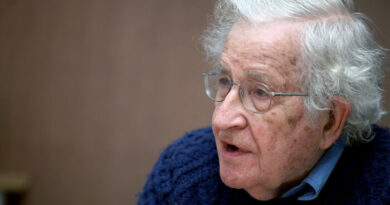
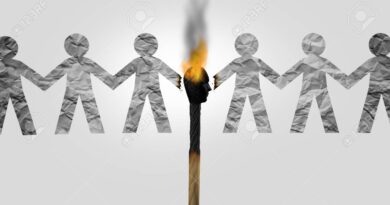

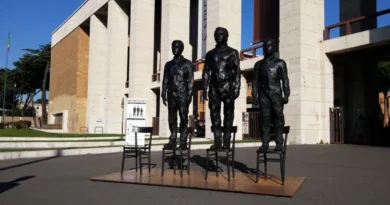
Pingback: Emilio Silva, president of the ARMH: there is still a firewall that prevents us from investigating the more than 100.000 disappeared in Spain | NR | alternative journalism